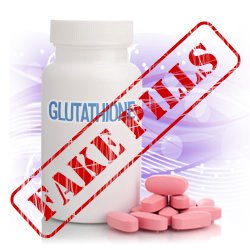 Glutathione is as important to your cells as
oxygen, food or water to survive. Glutathione is the master ‘Guardian of
the Cell.’ It’s our life force in the following ways:
Glutathione is as important to your cells as
oxygen, food or water to survive. Glutathione is the master ‘Guardian of
the Cell.’ It’s our life force in the following ways:• It is the maestro of the immune system in your cells
• Significantly decreases inflammation
• Removes toxins from your cells
• Neutralizes free radicals
• Fuels ATP production
“In any given second there are tens of thousands of chemical and electrical reactions occurring inside our cells. Glutathione is a key factor in directly supporting many of those reactions as well as neutralizing free radicals and escorting toxins out of the cell. It is called the ‘Guardian of the Cell’ for good reason.” Dr. Davidson
How does Glutathione body detoxification protect us from the various toxins?
There is no simple answer.
Basically it protects us in two ways. One, it detoxifies or helps remove toxins when they enter the body and subsequently the individual cells in the organs. So after the attack it goes to work removing the toxins.
When a person overdoses on Tylenol, in the hospital ED or ER Doctor will administer a glutathione precursor that promotes the production of Glutathione.
Daily we are attacked by enemy insurgents. The intercellular glutathione body detoxification is one of the body’s most important defense systems. Unfortunately few even know of it.
Scientific studies have shown that glutathione (GSH) has multiple detoxification functions. Depletion of glutathione is associated with increased risk of chemical toxicity.
With so many man-made chemicals being released into the atmosphere and waterways, and added to foods and medications, you might wonder whether or not your body even knows what to do with such harsh materials when it comes into contact with them. After all, many of these toxic chemicals do not occur in nature, but are manufactured in the lab. Fortunately, your body has a natural, inborn detoxification system that relies primarily on glutathione for its activation and operation.
Glutathione is one of your body’s primary antioxidants. It is utilized by virtually every cell in your body, in its cellular enzymatic state (glutathione reductase), to maintain the cell’s healthy (redox) state and prevent the proliferation of harmful free radicals. Naturally, to aid detoxification, glutathione levels are highest in the liver and kidneys, which are the body’s primary detoxification organs.
Glutathione is more necessary than ever due to the environment in which most people live. Scientists have counted over 80,000 foreign chemicals in the foods people ingest and the air that is breathed. Without glutathione, all of these toxins can enter the body's cells and play havoc with their health.
Some of the most dangerous of the toxins that can enter the body are heavy metals. Fortunately, glutathione can remove heavy metals from the body's cells through a process called chelation.
Toxins also break down mitochondrial DNA within the cells. This causes rapid aging and premature cellular death. Glutathione creates a protective barrier that increases the strength of mitochondrial DNA. Through the same action, glutathione also protects another vulnerable part of the body's cells: the nucleus.
Another intracellular benefit of glutathione is the elimination of free radicals. As the most powerful natural antioxidant, glutathione plays a major role in reducing free radical damage.
RiboCeine™ is an advanced compound that effectively delivers the key precursor nutrient into the cell that enables it to produce optimal amounts of glutathione. It is designed to effectively protect and deliver the fragile cysteine molecule to the cell. Cysteine is often in limited supply in the body but is an essential component needed for the production of gluatathione. Glutathione is especially important due to its unique ability to protect the cell, the very place where ATP is manufactured. RiboCeine™ also delivers ribose, a natural compound required for the production of ATP, the basic form of cellular energy in the body. More cysteine leads to more glutathione and a strengthened cellular defense that benefits the entire body. And, RiboCeine™ is shown to be 300% more effective than NAC (N-acetyl-l-cysteine) in raising liver glutathione levels.
Unlike any other nutritional compound in the world, RiboCeine™ has been the subject of twenty published, peer-reviewed scientific studies that were funded by the National Institute of Health and other scientific institutions and has significantly outperformed all other means of glutathione enhancement against which it has been tested.
Facebook Comments:

































